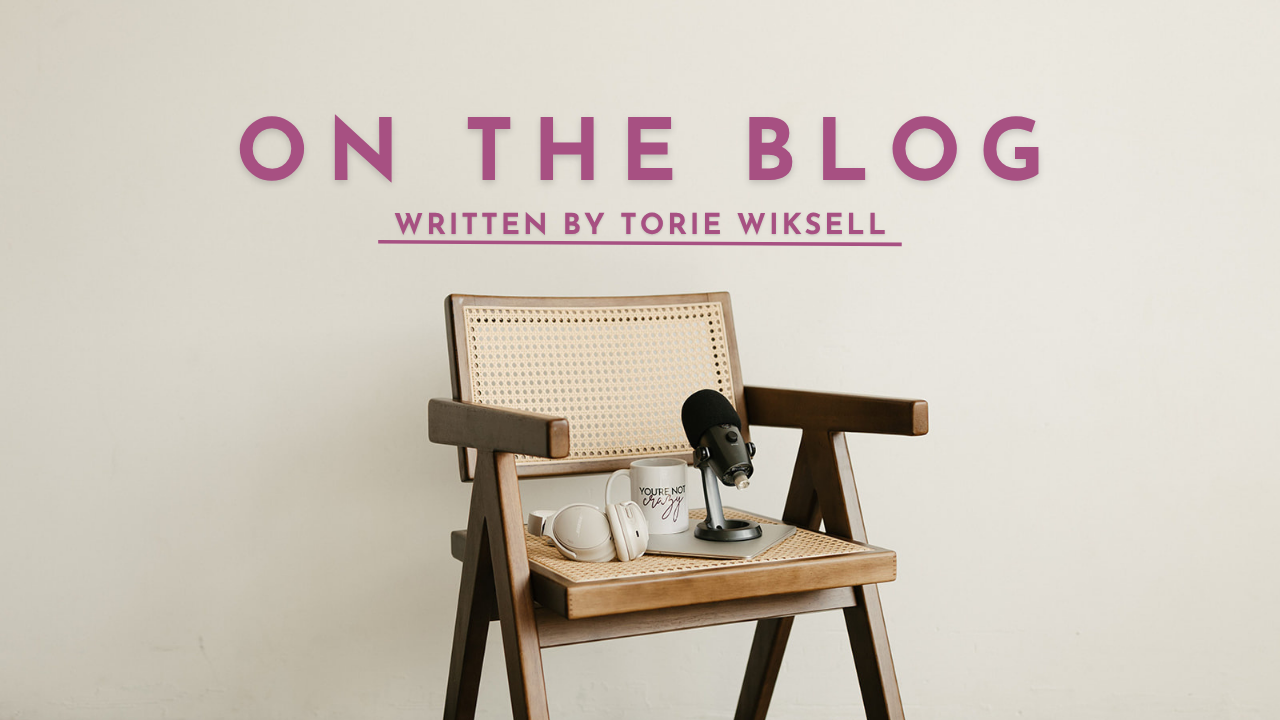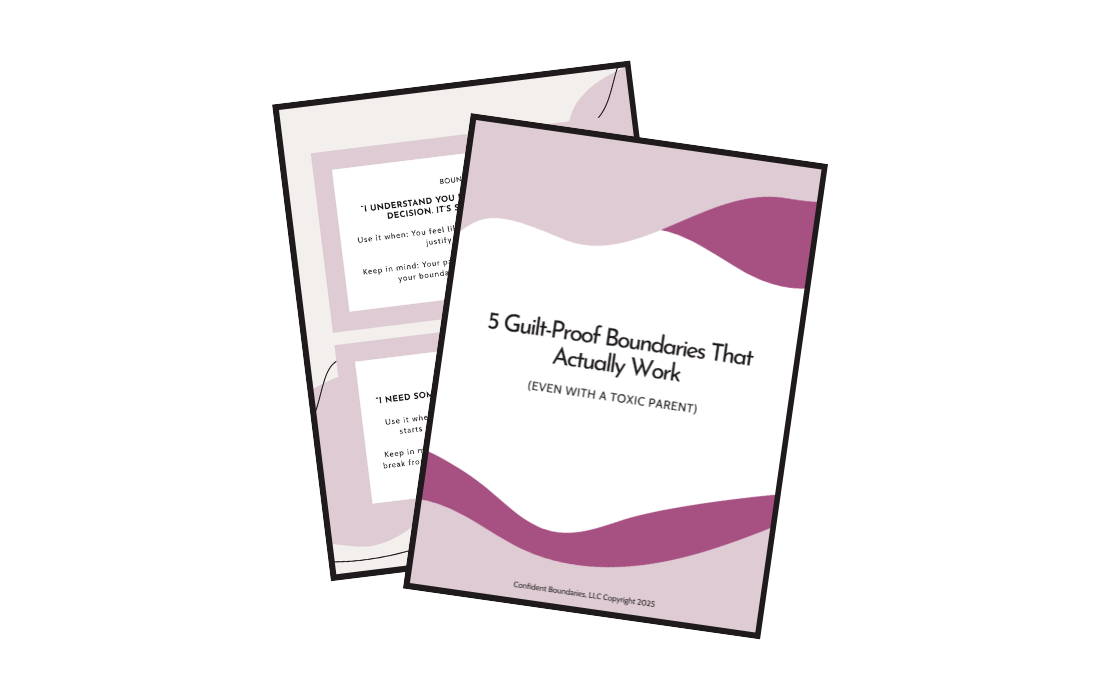
It’s Not Stigmatizing to Talk About the Abusive Behaviors in Borderline and Narcissistic Personality Disorders
You know what abusive people hate the most? When you call out their abusive behaviors.
So it doesn’t surprise me when people get mad that I talk about toxic parents and dysfunctional family systems. But it does get under my skin when people accuse me of being “stigmatizing” or “a bad therapist” for speaking honestly about the damage caused by parents with unmanaged borderline personality disorder (BPD) or narcissistic personality disorder (NPD).
Let’s be clear: It’s not stigmatizing to talk about abuse. It’s not stigmatizing to name the reality of what so many people in dysfunctional families experience. And it’s not stigmatizing to give survivors the language they were never allowed to have.
Talking About Abuse Isn’t Hate—It’s Education
As both a psychotherapist and a coach, my job is to help people make sense of the chaos they grew up in, untangle their guilt, and learn how to set boundaries with toxic parents. That work doesn’t happen in a vacuum. It requires truth-telling. And sometimes, that truth is ugly.
If we’re going to help people survive a borderline parent or stop blaming themselves for the damage done by a toxic mom or a toxic dad, we need to talk about what abuse actually looks like. That means discussing the dysfunctional family dynamics that come with personality disorders like BPD and NPD.
Not to demonize. But to inform.
People can’t protect themselves from abusive behavior if they don’t know what abuse looks like.
Understanding NPD: The Core Is Entitlement, Not Empathy
Narcissistic Personality Disorder is marked by a striking lack of empathy. People with NPD often see themselves as superior, more important, and more deserving than everyone around them. Their needs always come first—and if that means manipulating, gaslighting, or exploiting others to get what they want, so be it.
This entitlement isn’t just frustrating—it’s emotionally abusive. Adult children of narcissistic parents often spend years asking themselves, “Am I the problem?” because their parent has spent a lifetime blaming them for everything.
It’s not stigmatizing to name these behaviors. It’s validating. It’s clarifying. And it’s often the first step toward healing.
Understanding BPD: The Emotional Chaos Creates Collateral Damage
Borderline Personality Disorder shows up differently. People with BPD don’t actually lack empathy, but they often lack the capacity to hold space for anyone else’s emotions. Their inner world is flooded with overwhelming emotional pain—rage, abandonment terror, paranoia—and when those emotions spike, everyone around them gets caught in the crossfire.
This is especially true for children raised by a parent with unmanaged BPD. Children learn early on that your feelings don’t matter. That their responsible for their parent’s mood. That love is conditional. That anger can explode at any moment, and safety is always a moving target.
These are not small things. They’re not harmless personality quirks. They’re behaviors that are destabilizing and traumatizing.
Let’s Be Honest: The Stigma Argument Is Often Used to Silence Survivors
We can support people living with personality disorders without pretending their actions don’t hurt others. And we must speak up about abuse—especially when it happens behind closed doors in the name of “family.”
This Isn’t About Vilifying Parents—It’s About Validating Adult Children
If you grew up in a home with one of these dynamics, you don’t need more silence. You need language. You need clarity. You need to hear: What you experienced was real. And it was not okay.
Setting boundaries with a toxic parent often starts with calling things what they are:
Emotional abuse.
Gaslighting.
Neglect.
Control.
Manipulation.
Naming these patterns doesn’t make you cruel or bitter. It makes you honest. And honesty is the first step to healing.
Abuse Is Still Abuse—Even If a Personality Disorder Is Involved
We’re all responsible for our behavior. A mental health diagnosis doesn’t change that. It might explain why someone acts a certain way, but it doesn’t justify the harm. And it definitely doesn’t mean their child should just “suck it up” and tolerate it forever.
If you're an adult child of a parent with BPD or NPD and you're still dealing with guilt, fear, or confusion about your relationship, I want you to know this:
You’re allowed to name what happened.
You’re allowed to set boundaries that protect your peace.
You’re allowed to choose healing—even if it means upsetting people who don’t want to take accountability.
Because your healing matters too.
Final Word: This Is About Empowering Survivors—It Always Has Been and It Always Will Be
Talking about the abusive behaviors seen in borderline and narcissistic personality disorders isn’t about “hating” people with those diagnoses.
It’s about helping the copious amount of people—just like you—who were shaped by these dynamics, and who are now trying to untangle the trauma, survive Mother’s Day with a toxic mom, set boundaries with their emotionally immature parents, and finally answer the question:
“Am I the problem?”
(You’re not.)
Ready for Tools That Actually Work?
This is exactly why I created the Confident Boundaries Membership—and the $149 Boundaries Workshop that’s helped dozens of cycle breakers like you learn how to stop backtracking, stop panicking, and finally hold the line.
If you’re ready for support that gets it, start here:
-
Watch the Workshop – How to Set Boundaries That Stick (Even With a Toxic Parent)
-
Join the Membership – Tools, coaching, and community built for adult children of toxic parents
-
Download the Free Guide – 5 Boundaries That Actually Work With Toxic Parents
You’re Not Crazy.
But you might have been gaslit by your parents.
Learn how to recognize the signs—and start rebuilding trust in yourself.
I hate SPAM. I will never sell your information, for any reason.



